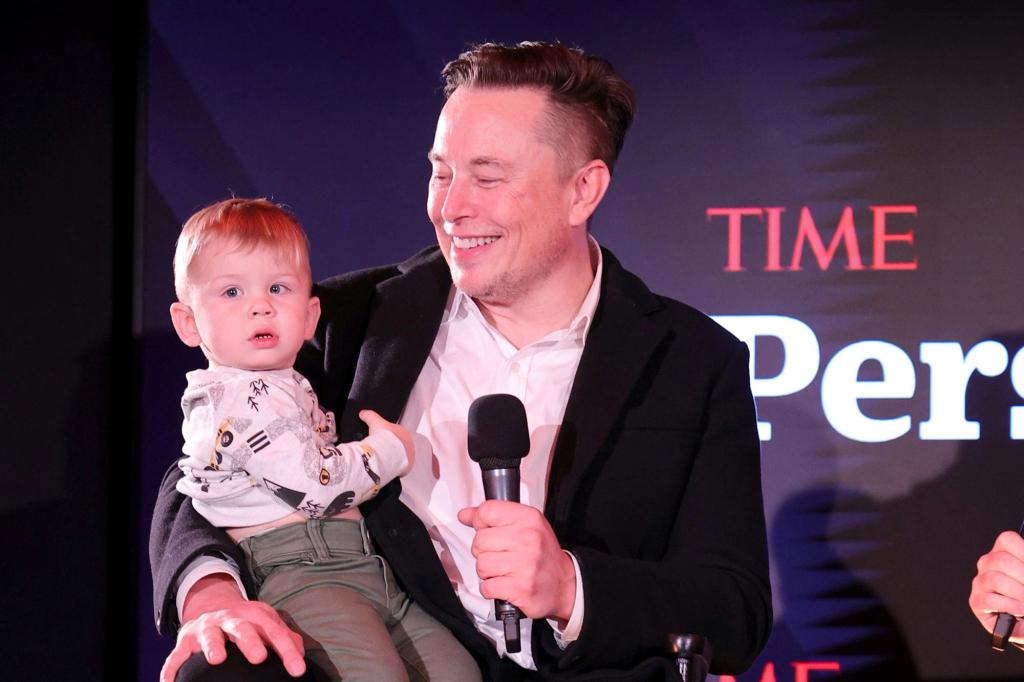Introduction
The intersection of parenting and science has taken an intriguing turn with Grimes’ revelation about her 3-year-old son’s fascination with toy rockets. According to Grimes Son, who she shares with Elon Musk, has moved beyond mere play and now demands accuracy in the design and functionality of toy rockets. This article delves into the young child’s quest for precision, shedding light on the curious world of a toddler’s scientific curiosity and the nurturing environment that encourages his exploration.
A Toddler’s Fascination with Precision
The Journey Beyond Play Grimes’ Son
Grimes’ observation of her son’s shift from casual play to a demand for precision underscores the early emergence of scientific curiosity. The transition from simply enjoying toys to seeking accuracy hints at the child’s innate interest in understanding the world around him.
Fostering Critical Thinking
The toddler’s insistence on physical correctness in his toys showcases his burgeoning critical thinking skills. At an age where exploration and learning are paramount, the desire for accuracy indicates the child’s drive to make sense of his environment through experimentation and observation.
The Role of Nurturing Environment
Nurturing Scientific Inquiry
Grimes’ disclosure offers a glimpse into the environment that supports the child’s scientific exploration. A nurturing setting that encourages questions, experimentation, and hands-on experiences can fuel a young mind’s curiosity and lay the foundation for a lifelong appreciation for science and discovery.
Embracing Curiosity
Grimes’ recognition of her son’s curiosity and her willingness to accommodate his quest for accuracy speaks volumes about the importance of allowing children to follow their interests. Her approach validates the child’s natural inclination to learn and explore, irrespective of age.
Early Encounters with STEM
Building a Foundation Grimes
The child’s fascination with toy rockets could be the beginning of a lasting interest in science, technology, engineering, and mathematics (STEM). Early experiences that engage a child’s imagination and curiosity often shape their future inclinations and career paths.
Embracing Learning as Play
By turning learning into play and allowing a child’s curiosity to lead, Grimes and Elon Musk are providing an invaluable gift to their son—a holistic understanding of the world that marries knowledge with exploration.
Conclusion
Grimes son’s transition from playing with toy rockets to seeking accuracy offers a heartwarming insight into the world of a toddler’s scientific curiosity. At a tender age, the child’s inclination toward precision hints at the early emergence of critical thinking skills and a passion for understanding the world through hands-on experiences. Grimes and Elon Musk’s nurturing environment plays a pivotal role in fostering this curiosity, emphasizing the significance of allowing children the freedom to explore their interests and engage in scientific inquiry from an early age. As the child’s journey unfolds, his pursuit of accuracy in play may well mark the first steps toward a lifelong appreciation for science and the wonders of discovery.
FAQs
What did Grimes reveal about her son’s interest in toy rockets?
Grimes shared that her 3-year-old son with Elon Musk now demands accuracy in the design and functionality of toy rockets instead of just playing with them.
What does the transition from play to accuracy indicate about the child?
The transition suggests the child’s burgeoning scientific curiosity and critical thinking skills, showcasing an interest in understanding the world through experimentation.
How does a nurturing environment support scientific exploration?
A nurturing environment encourages questions, experimentation, and hands-on experiences, fostering a child’s curiosity and laying the groundwork for lifelong learning.
What impact does nurturing curiosity have on a child’s development?
Nurturing curiosity supports the child’s early encounters with STEM subjects, shaping their future inclinations and appreciation for science, technology, engineering, and mathematics.
What role does play have in fostering learning and exploration in children?
By turning learning into play and allowing curiosity to guide exploration, parents can provide children with a holistic understanding of the world that encourages both knowledge and curiosity.










